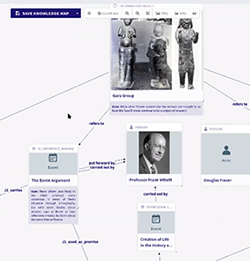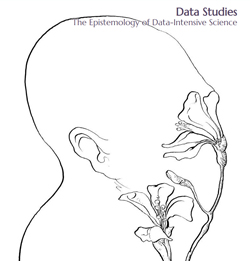2019-2020 Public Humanities Research Cluster
Project team
PI: Alan Richardson (Philosophy)
Co-PIs: Judy Segal (English Language and Literatures) and Alison Wylie (Philosophy & Anthropology)
Team members: John Beatty (Philosophy), Robert Brain (History), Anita Ho (Centre for Applied Ethics), Daniel LaFleur (Psychiatry), Chris Mole (Philosophy), Daniel Steel (Centre for Applied Ethics), Jessica Wang (History), Bruno Zumbo (ECPS)
Student Assistants: Vlada Asadulaeva (Philosophy, undergraduate program) Daniel Saunders (Philosophy, graduate program)
Project overview
Scientists score high on public surveys of trust in the professions, but, in many areas where social action is urgently needed, trust is limited; even when the science is well established, as in the case of climate science, it has proven difficult to secure coherent policy or action. Vaccine science is distrusted by many, even in the face of a deadly pandemic. In the case of new fields of science, such as data science and machine learning, enthusiasm about their promise confronts a variety of social anxieties–for example, about data ownership, privacy and manipulation, and whether algorithm-driven judgments in contexts as diverse as credit ratings, college admissions and parole decision replicate and amplify bias. While it is often assumed that science speaks the truth and should be trusted, it is true too that sometimes mistrust in science is warranted; the manifold problems of privatized medical research provide just one set of such examples.
This cluster focuses attention on two cases that raise issues for public trust in science in especially pointed terms: data science and mental health research. We gather methods from science and technology studies, history and philosophy of science, rhetoric of science and medicine, health humanities, and applied ethics—and aim to determine what scholarship in these fields can contribute to understanding and addressing these issues. We aim as well to forge a more adequate language of public epistemology and social responsibility for public discourse about them. We understand this to be humanities work for the public good, as much as public-facing humanities work.
Mental health focus
The current paradigm for understanding mental health and illness comes largely from biology—and while there has been some research and opinion to support the notion that mental illnesses is “just like” physical illness (and, according to some accounts, is physical illness—a matter, for example, of “chemical imbalance”), in fact, mental illness is much more complicated than such a model suggests. Current accounts of mental illness do not address the many ways in which people are mentally distressed and suffer; and uncertainty, doubt, and distrust are features of the broad mental-health landscape. Many experts across disciplines have been concerned, for example, about the proliferation of psychiatric diagnoses in the Diagnostic and Statistical Manual of Mental Disorders–and the relation of that proliferation to advantages accruing to pharmaceutical interests (why is it that illnesses and the drugs to treat them so often emerge, as philosopher Ian Hacking might say, “hand in hand”?). Our Cluster aims to understand the differing knowledge bases and values that inform different interacting groups –for example, pharmaceutical researchers, mental-health researchers, patients, patient-advocacy groups, mental-health workers and other care providers—might enter into more robust conversation.
Our first event is Zoom “fireside chat” with Dr. Margaret Price, Author of Mad at School: Rhetorics of Mental Disability and Academic Life. In conversation with Dr. Judy Segal, Dr. Price will take a Disabilities Studies approach to the topics she explores in her book, questioning some deeply-held, and generally unchallenged, values of university culture: productivity, participation, security, and independence—values typically consulted (deliberately and not) in assessments of both students and faculty members. She will talk about how we might ameliorate some of the problems that arise because of mentally-ableist assumptions and expectations within the academy. For this event, we are partnering with the Women’s Health Research Cluster; Dr. Price will address particular challenges to women in academe. Margaret Price is Associate Professor of English at The Ohio State University, specializing in disability studies and rhetorical theory. She is co-PI of the Transformative Access Project (re-imagining “access”) and received a 2020 Fulbright Research Award. In 2017, she was inducted into the Susan M. Daniels Disability Mentoring Hall of Fame.
Tuesday, March 2, 2021, 4:00-5:30
Data science focus
To catalyze discussion about “reasonable trust” in data science we have invited presentations by three colleagues from quite different fields who combine immersion in data science with science studies, philosophical and historical expertise. Each raises questions about whether existing digital research platforms and data science practices serve scholarly and public interests as intended, and each considers what would be required to realign their design so they warrant trust in a jointly ethical/political and epistemic sense. Taking these presentations as a point of departure, our aim is to identify areas of common interest among UBC colleagues who share our concerns about the erosion of reasonable trust in science, and see humanistic expertise – from history and philosophy of science / science and technology studies – as a crucial resource for understanding and addressing these issues.
Our first presenter, Dominic Oldman, Director of ResearchSpace at the British Museum, has overseen the development of a museum-based interface – a “dynamic knowledge representation system” – that has the flexibility to support diverse types of digital humanities research, as well as the work of public-facing cultural heritage experts. He details the challenges posed by systems whose digital architecture builds in ontologies that computer specialists take for granted, but are often ill-suited to humanistic and social scientific inquiry that aims to capture the diverse vantage points of situated groups and individuals.
 “Building Stronger and Connected Knowledge through Data Driven Cognitive Maps”
“Building Stronger and Connected Knowledge through Data Driven Cognitive Maps”
Wednesday, January 20, 2021, 12:30-2:00
The second presentation in this mini-series is Luke Bergmann, who recently joined the UBC Geography Department. He has published several articles calling for a critical approach to geographical information systems, urging a turn away from technology-driven research design and reliance on unreflective conceptions of “data” as interpretively neutral, disconnected from the contexts of their production and circulation. He explores the potential for refashioning “geographic information” and its analysis to better support interpretive inquiry that generates explicitly situated knowledges, and asks how humanistic scholars can contribute to this turn toward critical inquiry and geo-interpretation.

“Geographical Data Science: Making Spaces for Interpretation”
Wednesday, February 3, 2021, 12:30-2:00
Our final speaker is Sabina Leonelli, a philosopher of science at Exeter University who has systematically scrutinized the conceptions of data that underpin “data-intensive science” in the plant sciences, with a focus on genomic data bases. As the director of a long-running EU project on “The Epistemology of Data-Intensive Science,” she assembled an international team of scholars from diverse fields whose contributions appear in Data Journeys in the Sciences (Leonelli & Tempini, eds; 2020). Her philosophical analyses of how data science functions are empirically grounded, and she plays an active role advising on database design and open science policies in the EU. She will present recent work on how instrumental applications of data science runs the risk of compromising the reliability and usefulness of research on pandemic contagion sources and rates.
 “Data Science in Times of Pan(dem)ic”
“Data Science in Times of Pan(dem)ic”
Wednesday, February 24, 2021, 12:30-2:00
Other events will be posted as details are confirmed.
 “
“